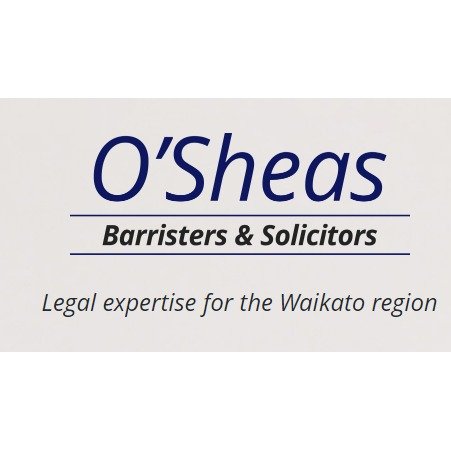Best Faith-Based Law Lawyers in New Zealand
Share your needs with us, get contacted by law firms.
Free. Takes 2 min.
Or refine your search by selecting a city:
List of the best lawyers in New Zealand
About Faith-Based Law in New Zealand
Faith-Based Law in New Zealand involves legal frameworks that intersect with religious beliefs and practices. This area of law acknowledges the freedom of religious beliefs while ensuring compliance with general legal standards. This can include issues related to religious institutions, individual rights to practice religion, and how religious customs interact with secular laws.
Why You May Need a Lawyer
Individuals and organizations may seek legal advice in Faith-Based Law for several reasons, including:
- Disputes involving religious institutions and their congregants.
- Issues related to religious discrimination in the workplace or public sphere.
- Legal challenges regarding religious education or schools.
- Conflicts arising from religious-based wills and inheritance.
- Understanding legislative compliance for religious charities or organizations.
- Immigration issues that may require consideration of religious grounds.
Local Laws Overview
New Zealand's legal system is primarily secular; however, it accommodates religious freedom as enshrined in the New Zealand Bill of Rights Act 1990. Key aspects of local laws relevant to Faith-Based Law include:
- Religious Freedom: Protects an individual’s right to express and practice their religious beliefs.
- Anti-Discrimination: Human Rights Act 1993 prohibits discrimination based on religious grounds in areas such as employment and education.
- Charitable Status: Religious organizations may qualify as charities under certain criteria that comply with the Charities Act 2005.
- Educational Exemptions: Laws allow for religious instruction in schools under specific guidelines, respecting parental rights and children's freedom of religion.
Frequently Asked Questions
What is Faith-Based Law?
Faith-Based Law refers to the legal considerations and regulations involving the interaction between religious practices and secular law.
How does New Zealand law protect my religious freedom?
The New Zealand Bill of Rights Act 1990 ensures individuals can practice their religion freely, subject to limitations aimed at protecting public safety and the rights of others.
Can religious beliefs be used as a defense in legal proceedings?
While religious beliefs are respected, they usually cannot exempt individuals from legal obligations. Courts consider such beliefs as part of broader legal contexts.
How does the law handle religious discrimination?
The Human Rights Act 1993 protects against discrimination in various sectors based on religion, ensuring fair treatment under the law.
Are religious organizations taxed in New Zealand?
If registered as charities, many religious organizations may benefit from tax exemptions, provided they comply with the Charities Act 2005.
What are my rights regarding religious education in schools?
New Zealand law permits religious instruction in public schools, allowing parents to decide their children’s participation.
Can religious practices affect my immigration status?
Religious beliefs can be considered in immigration policies, especially if individuals face persecution in their home countries.
How do I deal with faith-based disputes within a community?
Community leaders, along with legal counsel, can mediate faith-based disputes, balancing cultural and legal aspects.
What legal responsibilities do religious leaders have?
Religious leaders are expected to comply with New Zealand’s legal standards, including health, safety, and the rights of their congregants.
How do faith-based wills work under New Zealand law?
Wills based on religious laws must still conform to New Zealand statutes, particularly the requirements of the Wills Act 2007.
Additional Resources
For further assistance or information, consider these resources:
- New Zealand Human Rights Commission: Provides guidance on anti-discrimination laws.
- Ministry of Culture and Heritage: Can offer cultural insights and support related to religious practices.
- Charities Services: Offers resources about the registration and regulation of charities.
- Citizens Advice Bureau: Provides free advice and referrals for legal inquiries.
Next Steps
If you need legal assistance in Faith-Based Law, consider the following steps:
- Identify your specific legal needs regarding faith-based contexts.
- Research and select a lawyer experienced in Faith-Based Law in New Zealand.
- Prepare all relevant documentation and evidence related to your case.
- Schedule a consultation to discuss your situation and explore legal options.
- Consider mediation or alternative dispute resolution methods if applicable.
By taking these steps, you can better navigate the complex field of Faith-Based Law and ensure your rights and interests are protected within the legal framework of New Zealand.
Lawzana helps you find the best lawyers and law firms in New Zealand through a curated and pre-screened list of qualified legal professionals. Our platform offers rankings and detailed profiles of attorneys and law firms, allowing you to compare based on practice areas, including Faith-Based Law, experience, and client feedback.
Each profile includes a description of the firm's areas of practice, client reviews, team members and partners, year of establishment, spoken languages, office locations, contact information, social media presence, and any published articles or resources. Most firms on our platform speak English and are experienced in both local and international legal matters.
Get a quote from top-rated law firms in New Zealand — quickly, securely, and without unnecessary hassle.
Disclaimer:
The information provided on this page is for general informational purposes only and does not constitute legal advice. While we strive to ensure the accuracy and relevance of the content, legal information may change over time, and interpretations of the law can vary. You should always consult with a qualified legal professional for advice specific to your situation.
We disclaim all liability for actions taken or not taken based on the content of this page. If you believe any information is incorrect or outdated, please contact us, and we will review and update it where appropriate.
Browse faith-based law law firms by city in New Zealand
Refine your search by selecting a city.













